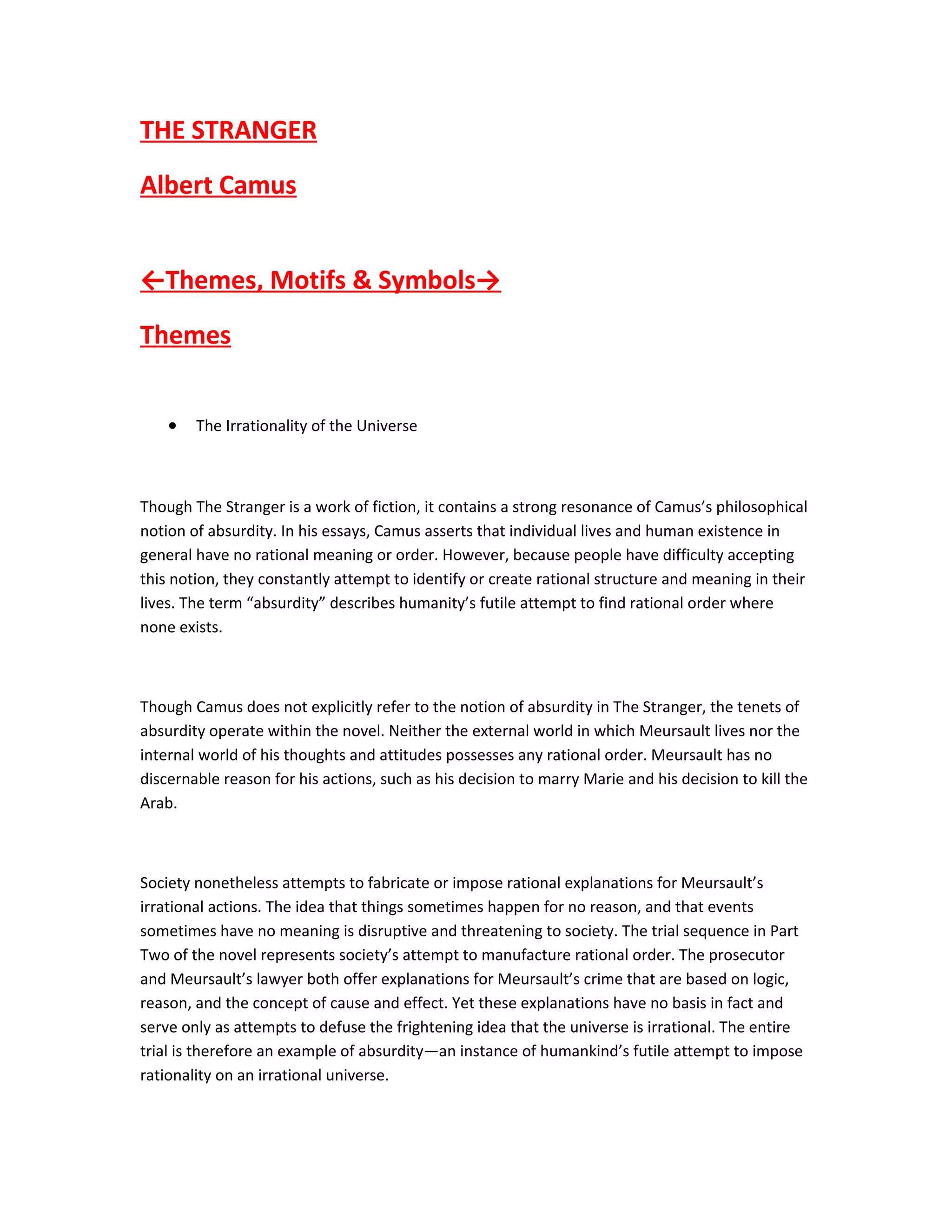The document provides a summary and analysis of themes, motifs, and symbols in Albert Camus' novel The Stranger. Some of the major themes discussed include the irrationality of the universe, the meaninglessness of human life, and the importance of the physical world. Key motifs examined are decay and death, and watching and observation. The courtroom and crucifix are identified as important symbols in the novel relating to society and the search for rational order and meaning.



